On View
Desert X Arrives in Coachella Valley, Bringing Art That Reflects on Ecology. See Images of the Show Here
Works by Tschabalala Self, Torkwase Dyson, and Tyre Nichols are included in the fourth iteration of the biennial exhibition.
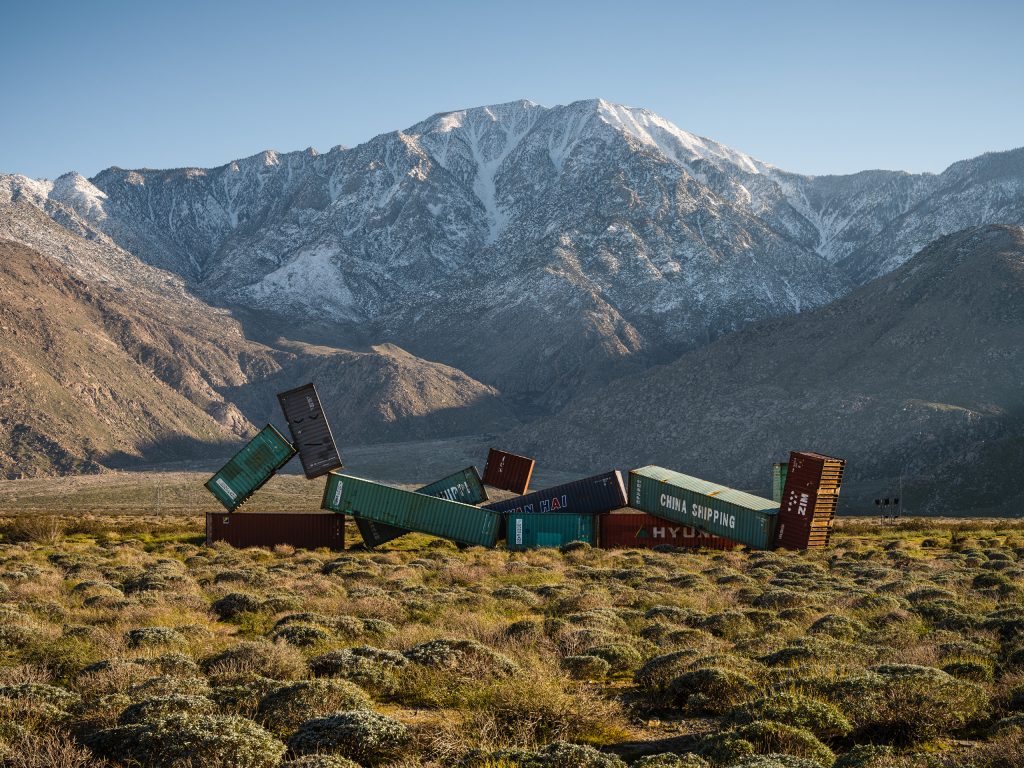
Works by Tschabalala Self, Torkwase Dyson, and Tyre Nichols are included in the fourth iteration of the biennial exhibition.

Taylor Dafoe

The newest iteration of Desert X is all about water—which might come as a surprise, seeing as how there’s not much liquid of any kind to be found along the dusty stretch of land in south-central California where the biennial exhibition is installed through May 7.
But, for Neville Wakefield and Diana Campbell, the show’s two curators, “a desert is not defined by the absence of water.” To them, “the desert landscape is formed by the memory of water.”
As suggested by that quote, this year’s Desert X—the fourth mounted in the Coachella Valley since the program was founded in 2017—zooms out for a holistic, ecological perspective on the land and art’s place in it. This edition spreads across the land and features the work of 12 artists and collectives, including Tschabalala Self, Torkwase Dyson, and Tyre Nichols, among others.
“How do we connect the specificities of the Coachella Valley to the wider biosphere, where resources and energy… flow across borders and impact parts of the world we may never see?” Campbell asked in a recent interview.
That’s a lofty prompt, as much of the curators’ ideas are. But navigate from one individual site-specific commission to the next, and it becomes clearer what the duo means.
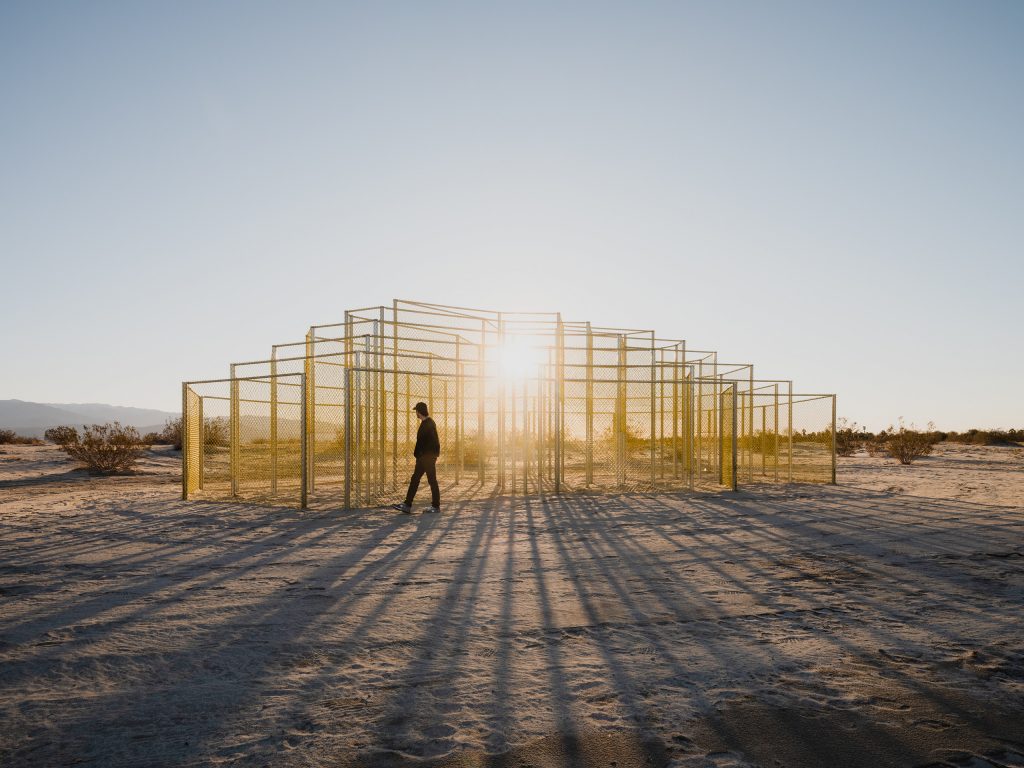
Rana Begum, No.1225 Chainlink (2023). Photo: Lance Gerber. Courtesy of the artist and Desert X.
A sculpture by the Bangladesh-born, London-based artist Rana Begum, for instance, is made almost entirely from chainlink fencing—a ubiquitous industrial material used to demarcate natural land as human property. The maze-like quality of Begum’s piece also suggests that it’s not just acreage these fences tend to divide.
In a funny way, Matt Johnson’s contribution to the show—a tenuous arrangement of stacked shipping containers—shares similar themes. On one hand, the L.A. artist’s gigantic installation situates the region in a globalist context and suggests connection across cultures, countries, and oceans; on the other, it points out that that sense of connection is mediated through commerce and comes with a devastating environmental toll.
Elsewhere in the valley is a larger-than-life game board, conceived by Gerald Clarke; an assemblage of reflective squares mounted atop the same electric motors used for mechanical bulls, made by Mario García Torres; and a readymade car sculpture from which a pair of giant animal arms emerges from its trunk, courtesy of Paloma Contreras Lomas.
Together, these makers’ contributions “make visible, as instruments of self-awareness and devices of wonder, the forces that we exert on the world,” according to a catalog text from Wakefield.
See more images from Desert X 2023 below.

Lauren Bon, The Smallest Sea with the Largest Heart (2023). Photo: Lance Gerber. Courtesy of the artist and Desert X.
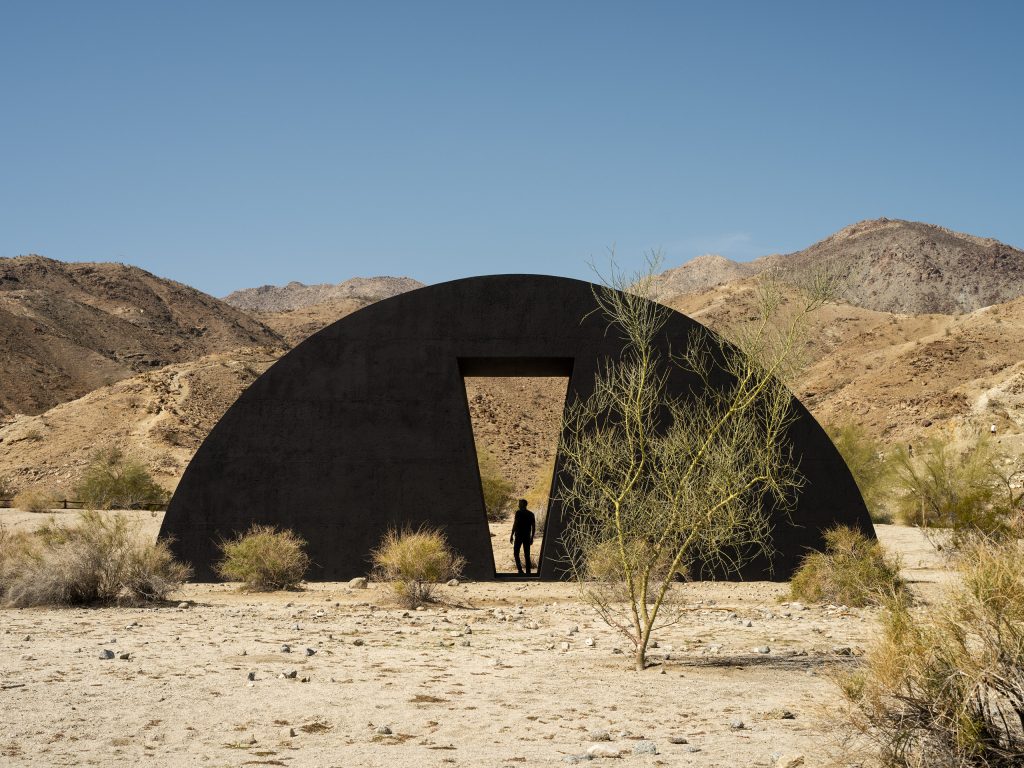
Torkwase Dyson, Liquid A Place (2023). Photo: Lance Gerber. Courtesy of the artist and Desert X.
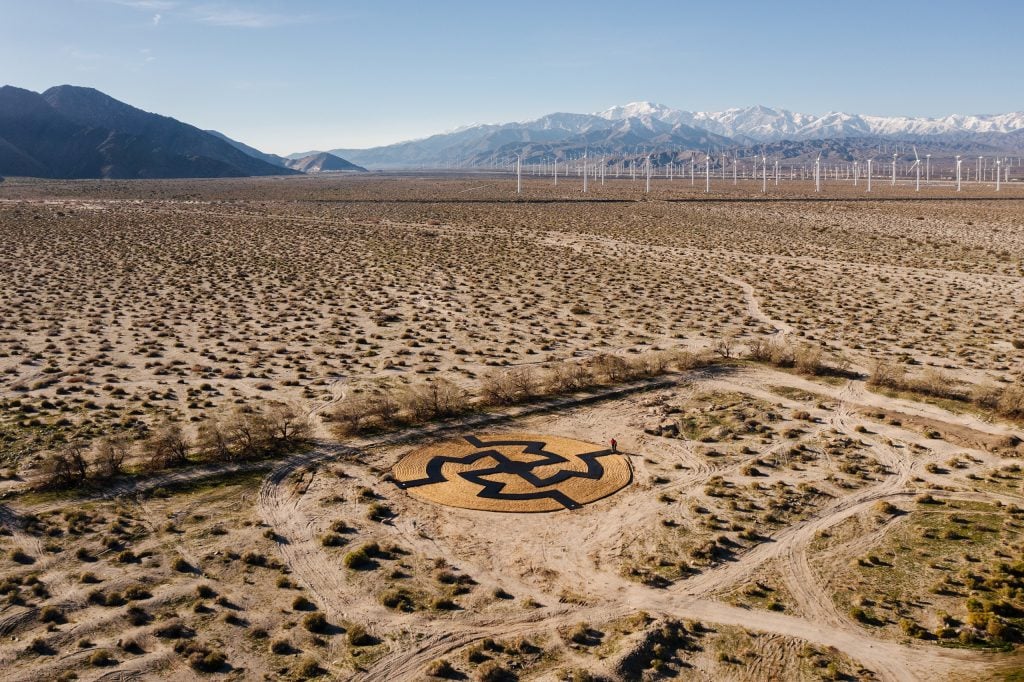
Gerald Clarke, Immersion (2023). Photo: Lance Gerber. Courtesy of the artist and Desert X.
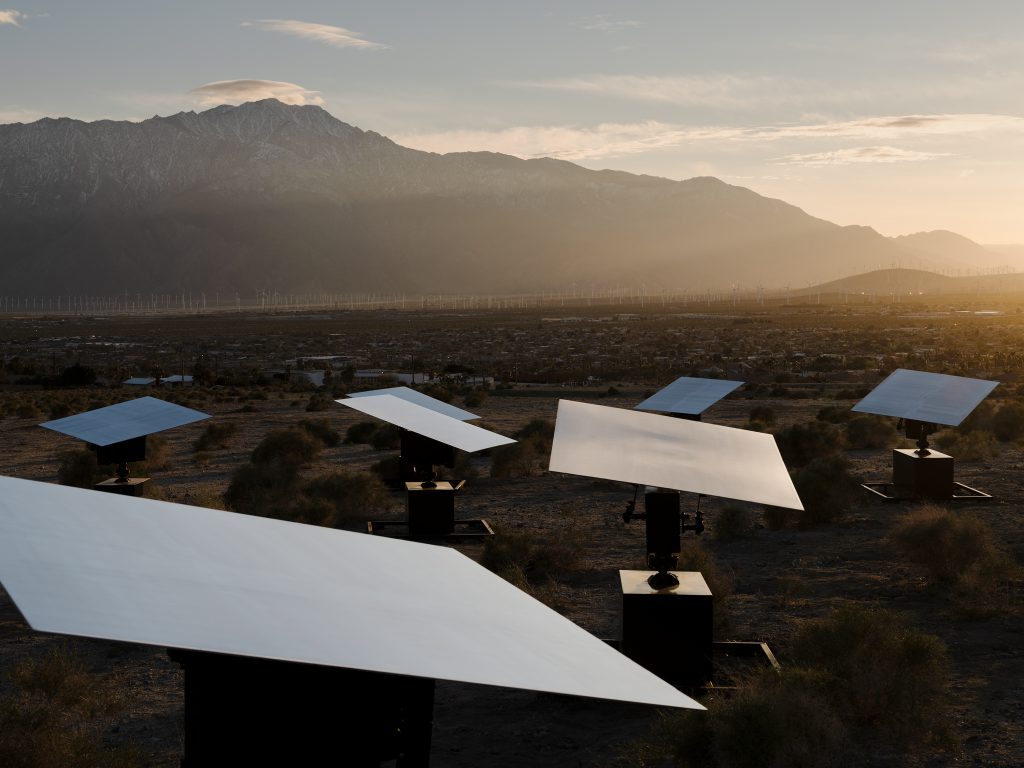
Mario García Torres, Searching for the Sky (While Maintaining Equilibrium) (2023). Photo: Lance Gerber. Courtesy of the artist and Desert X.
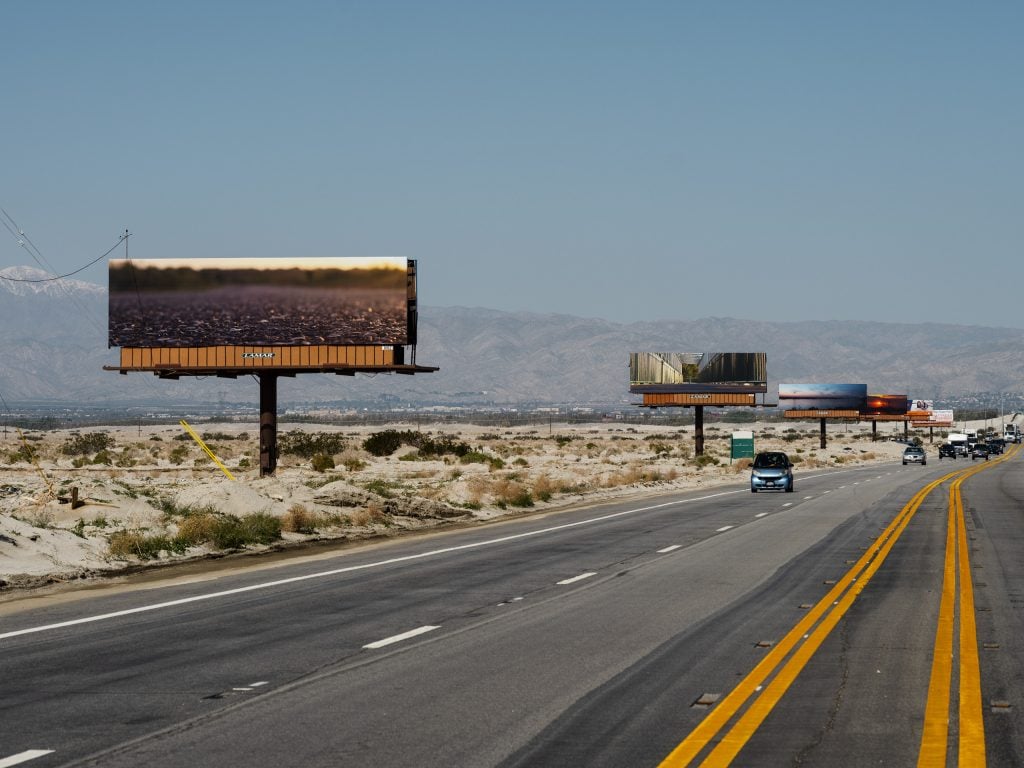
Tyre Nichols, Originals (2023). Photo: Lance Gerber. Courtesy of the artist and Desert X.
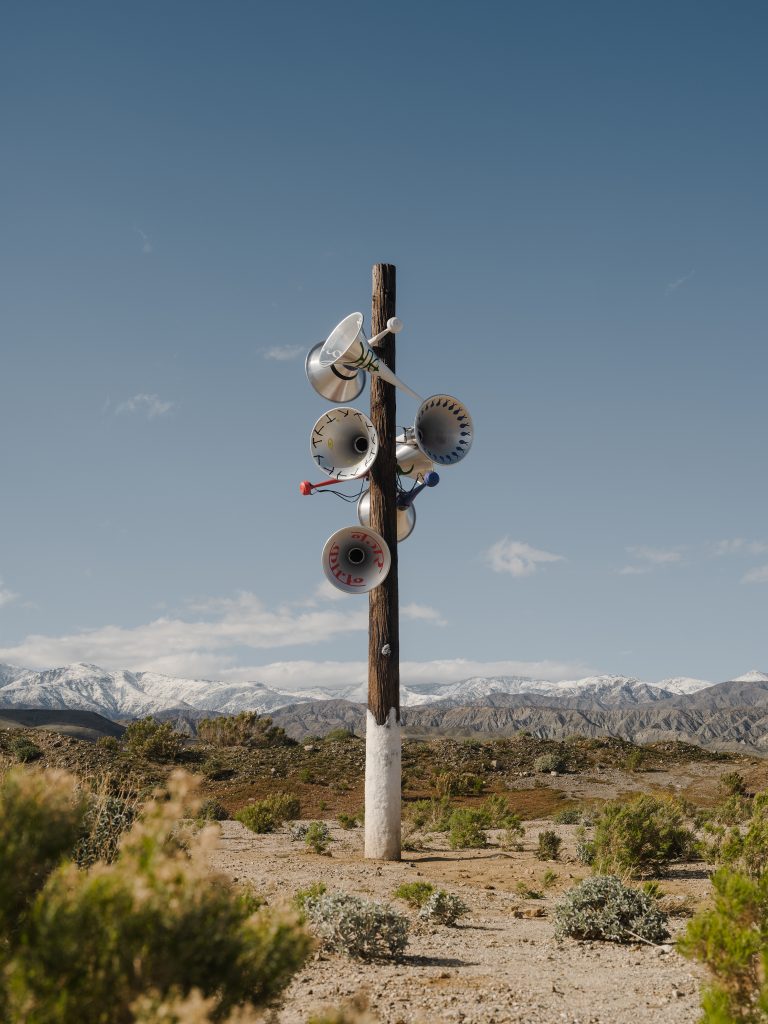
Hylozoic/Desires, Namak Nazar (2023). Photo: Lance Gerber. Courtesy of the artist and Desert X.
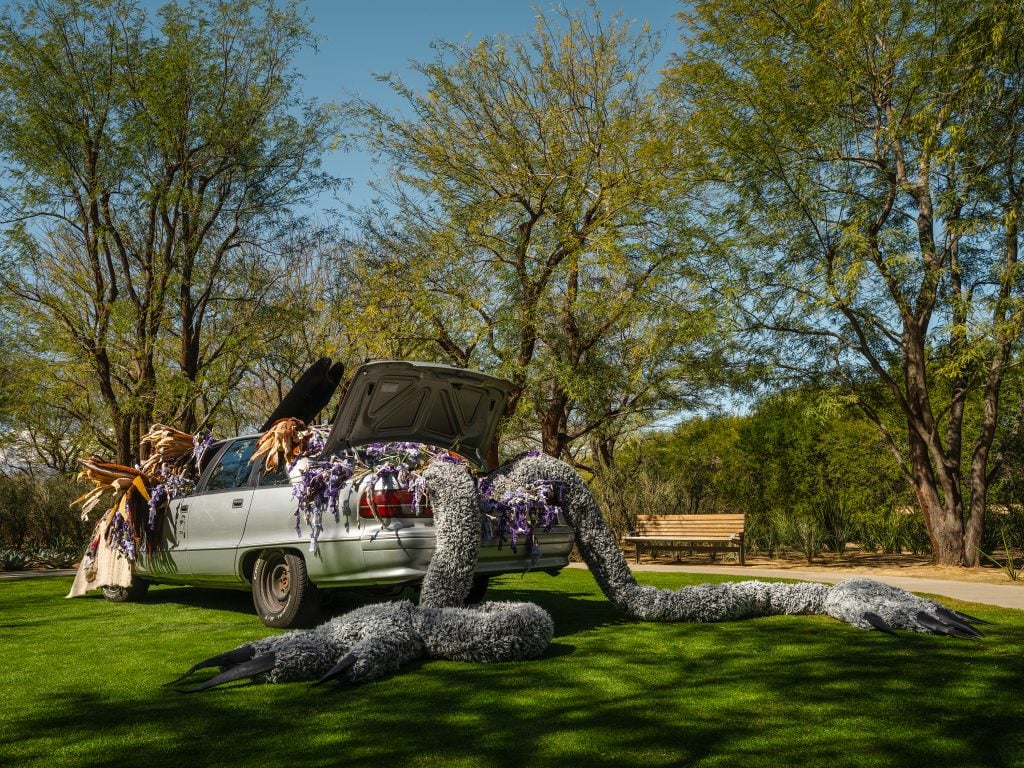
Paloma Contreras Lomas, Amar a Dios en Tierra de Indios, Es Oficio Maternal (2023). Photo: Lance Gerber. Courtesy of the artist and Desert X.
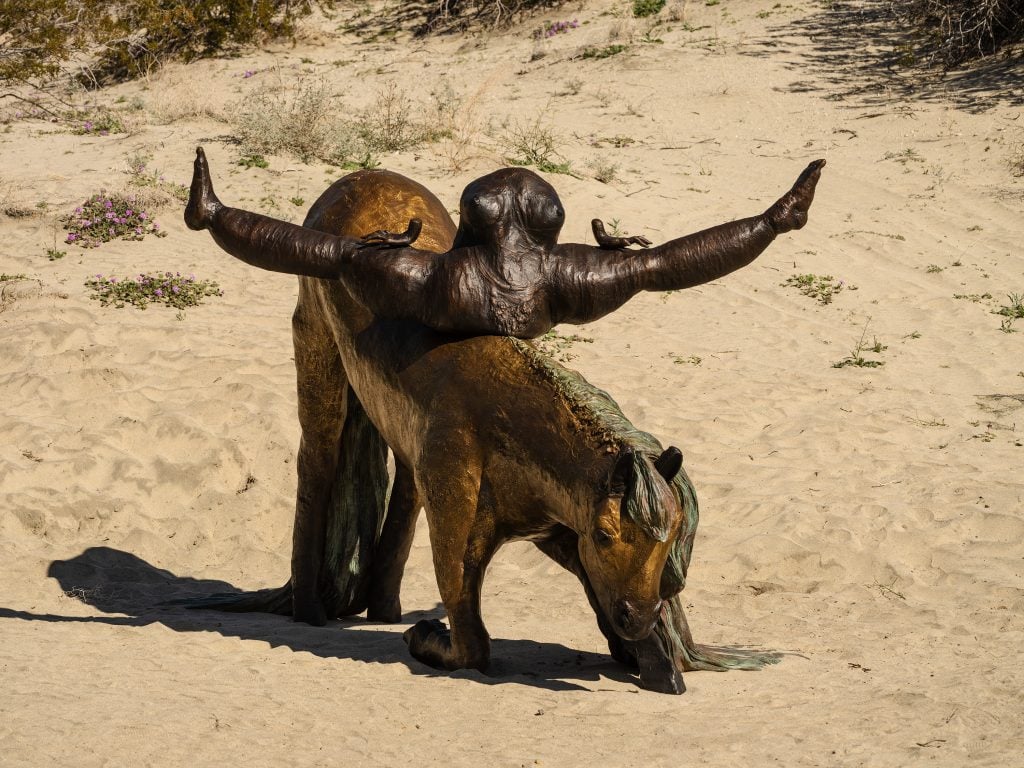
Tschabalala Self, Pioneer (2023). Photo: Lance Gerber. Courtesy of the artist and Desert X.